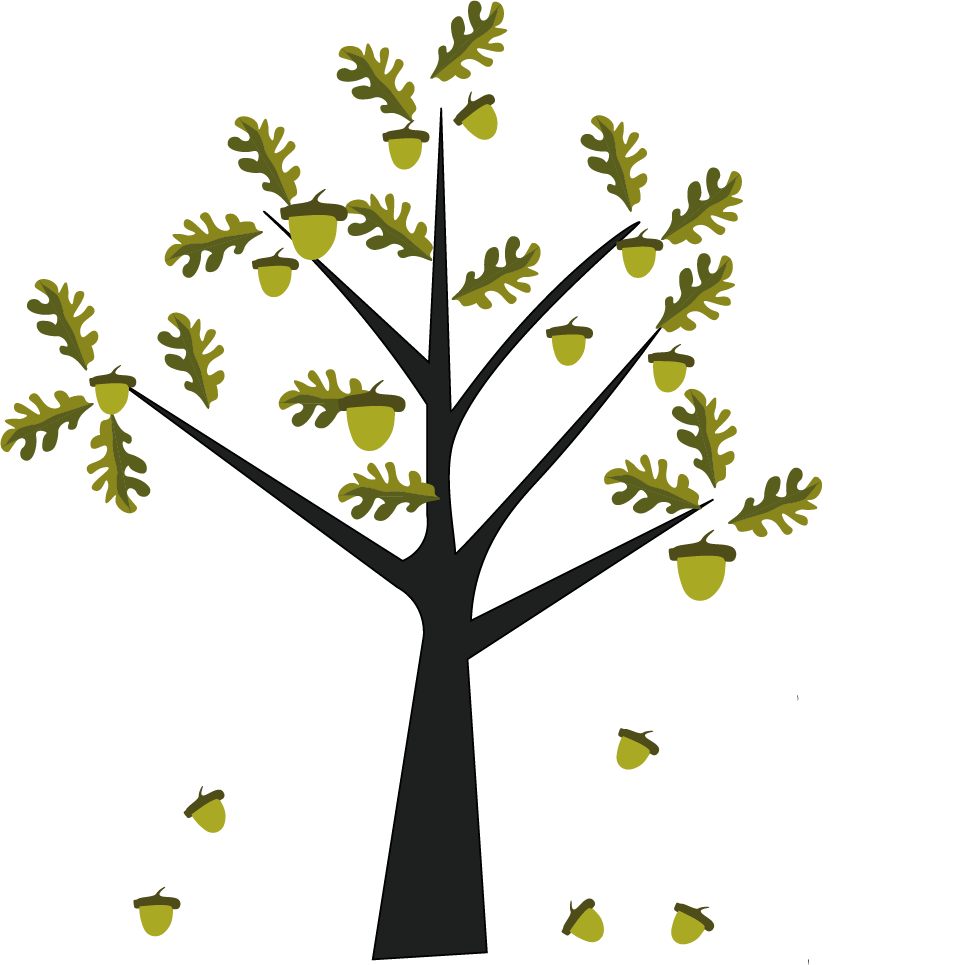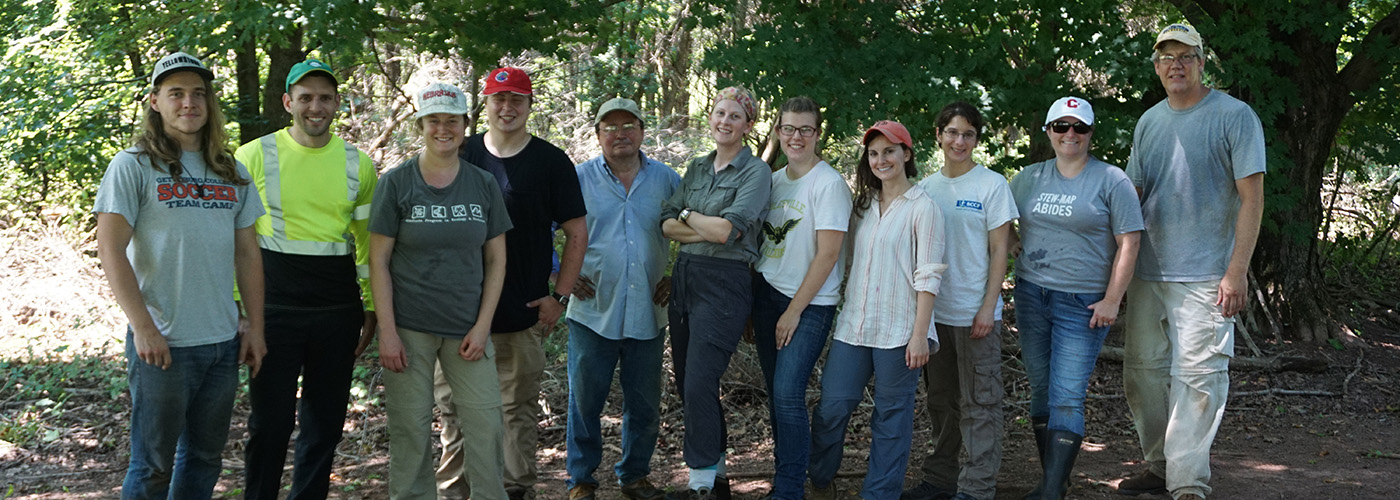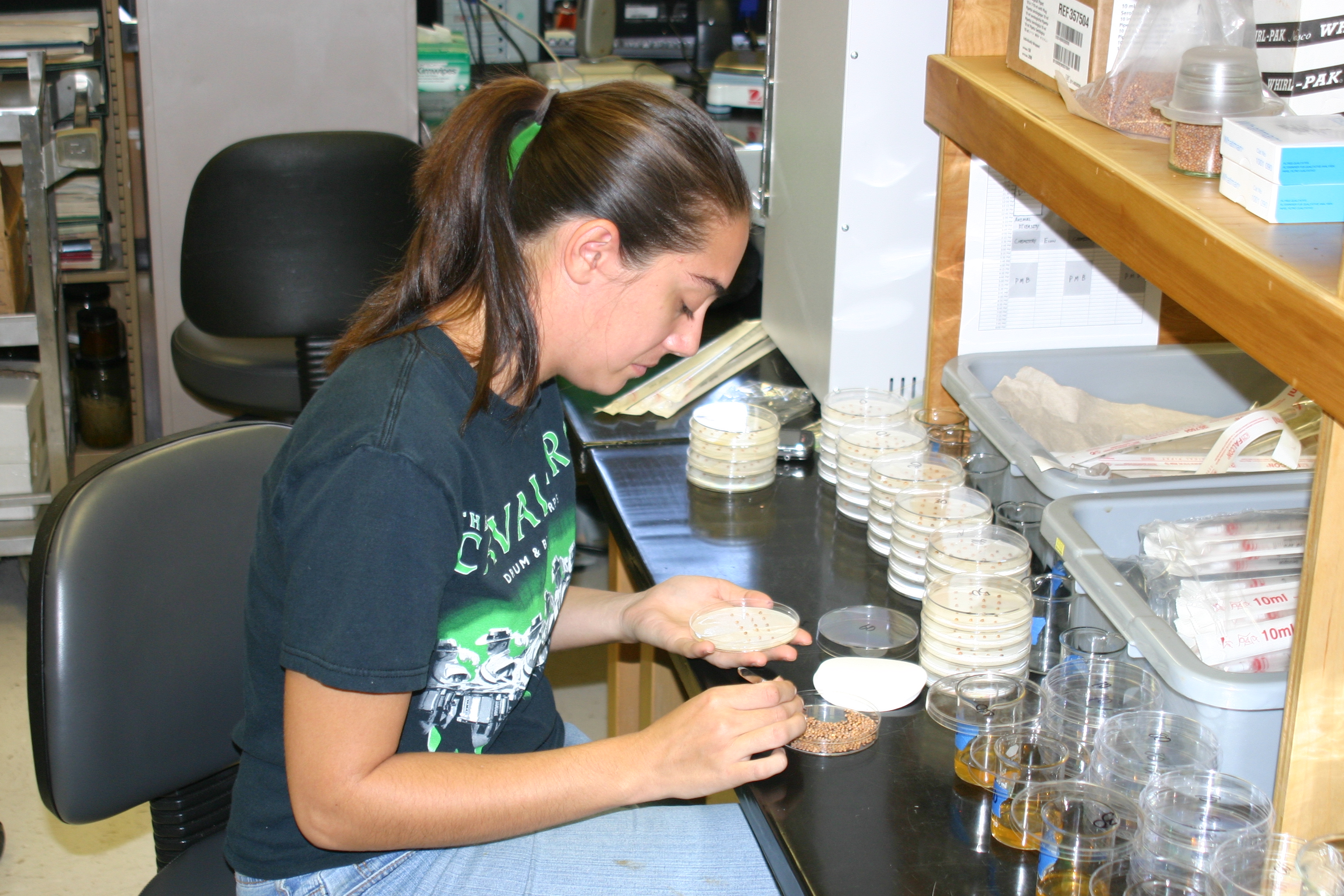The Lab
My research groups are composed of undergraduate and graduate (MS) students, working on a broad range of topics at any given time. As a part of student training, it is my firm belief that students need to design and develop their own research program. Self-driven projects are critical as it provides students with the skill needed to start with a question and work forward from there. Therefore, my students are all free to study whatever research topic interests them, as long as I can reasonably provide advice on the project.
A large number of my MS students go on to pursue PhD or other professional degrees. Regardless of whether a student’s goal is further training or to enter the job market, there are two primary foci for student training in my lab. First and foremost, all of my students must develop strong quantitative skills. Everyone wants to work outside and do the fun field work, but relatively few people have the ability to take data and build something coherent out of the analyses. Strong quantitative skills ensure success in both PhD programs and conservation positions. Secondly, I place a strong focus on writing. The best project, written poorly, is a poor project. Writing skills, or at least the beginnings of them, are critical in nearly every career trajectory.
Below are some current student and recent research projects being done in my lab. If you are interested in joining my group, please contact me!
Current Students and Research Projects
- Yazeed Alshammari (MS student) Intraspecifc variation in goldenrod soil microbial communities
- Cody Leverette – (MS Student) Mutualist limitation in Autumn olive
- Malak Mahlaoui – (Undergraduate) Seedling traits of species in prairie restorations
- Kylee Nissen – (MS Student) Effect of managmnet on pollinators in prairie restorations
- Josh Poland - (MS Student) Effect of cover crops on prairie restoration
- Ashely Sharkus – (Undergraduate) Role of soil microbes in determining seedling development in milkweeds
Lab Alumni (2010 onward)
- Allison Earl (MS 2023) Effects of fire on savanna trees. Iowa DNR
- Bryan Foster – (MS 2021) Relating chemical variation among goldenrod clones to their ecological characteristic. PhD Student, Southern Illinois
- Brendan Haile (MS 2020) Context dependency of the impacts of exotic plants on the controllers of initial invasion. PhD Student at Georgia
- Taylor E. Strehl (MS 2019) Impacts of plant-microbe interactions on seedling performance in a riparian forest invaded by Lonicera maackii. PhD Student, University of Illinois
- Scott V. Janis (MS 2019) Context dependency of invasion impacts on the controllers of invasibility in Microstegium vimineum. PhD Student, University of Louisville
- Jessica M. Rohr (MS 2019) Assessment of recovery and stream restoration efforts on fish communities. Veterinary Student, University of Missouri
- Abdul Khafsha (MS 2019) Variation in leaf morphology of an alpine shrub community along environmental gradients. PhD Student, University of Sheffield, UK
- Charles Jacques (MS 2018) The effect of self-recognition in the competition between genets of iSolidago altissima. PhD Student Utah
- Pabitra Aryal (MS 2017) Evaluation of ectomycorrhizae as a determinant of chestnut growth and stress response. PhD Student, Virginia
- Sharon Dubosky (MS 2016) Evaluation of chestnut and hazelnut varieties for central Illinois. Greenhouse Manager, Eastern Illinois University
- Hanna Kruckman (MS 2016) Ecology of catfish populations in the Wabash River. USFWS, Minneapolis
- Shannon Smith (MS 2016) Effects of dams on the genetic structure of fish populations. PhD Student Virginia
- Leo Herzberger (Undergraduate, 2016) Influence of soil microbial communities on native and non-native legumes in prairie restoration. MS student, Tarleton State
- Kirstin Duffin (MS 2015) Functional ecology of leaf nutrient chemistry in a successional plant community. Science librarian, Eastern Illinois University
- Kirstin Duffin (MS 2015) Functional ecology of leaf nutrient chemistry in a successional plant community. Science librarian, Eastern Illinois University
- Peter Frey (MS 2014) Microenvironmental habitat selection of regenerating oak and maple seedlings. NRCS, IL
- Ryan Hastings (MS 2014) Effects of dams on fish and macroinvertebrate communities in the Vermillion River, IL. USGS, IL
- Anna Herzberger (BS 2014) Honor's thesis: Plant-microbial interactions change along a prairie restoration chronosequence PhD student, Michigan State University
- Kelsey Phipps (BS 2014) Undergraduate thesis: Impacts of soil microbial communities on the allelopathic potential of goldenrod. D. Pharm. Concordia University. Currently a Pharmacist in Fort Wayne, IN
- Royce Luo (MS 2012) Ecology of mycorrhizae during old field succession. Guilin Institute of Tourism, China
- Nikki Pisula (BS 2008,MS 2010). Does evolutionary exposure mediate allelopathic effects? Consultant, Chicago, IL
- Kim Lang (MS 2010) Effects of forest edges on population dynamics in a successional system. Research technician, Bradley University
Frequently taught courses:
This introductory course leads students though the primary approaches of statistical analysis, specifically focusing on applications in biology. Rather than doing all calculations by hand, we use the software package R to run most analyses. This class is for both undergraduate majors and graduate students who have not had or need a refresher in statistical analysis.
This class focuses on the interactions of plants with their environment and other organisms. Primary focus is on terrestrial systems, but not exclusively. The class is centered on a large, open ended research project designed to introduce the class to the essentials of designing and implementing a research project. The projects do not always work out, but a few have resulted in a publication. Open to graduate and undergraduate students.
This graduate course is a survey of statistical methods that are commonly employed (or should be) in the biological sciences. The focus is on the utility and application of each technique, not the mathematics behind them. All analyses are done in the software package R. The capstone experience in this class is the development of a research project that uses statistics to address an issue of the student’s choosing. From this project, the student produces a poster to share with the class and a term paper.
This is a lecture based graduate course that examines the conceptual background of how plant, microbial, and animal communities function. The class includes weekly paper discussions and the capstone project is the production of a research proposal that allows a student to pursue their individual interests (taxonomic or conceptual). The last weeks of the class are reserved for presentations on this project.




